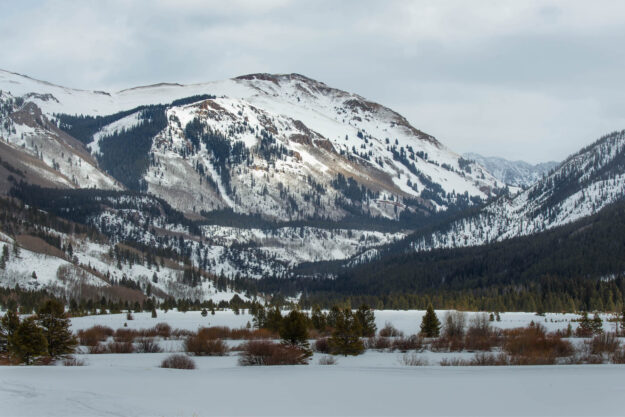Widgetized Section
Go to Admin » Appearance » Widgets » and move Gabfire Widget: Social into that MastheadOverlay zone
Opinion: Camp Hale needs monument status to stave off extractive industries, protect our water

The Camp Hale-Continental Divide is the proposed site of a national monument encompassing the historic site of Camp Hale and the area surrounding Colorado’s Continental Divide.
As a former military base, the Army’s 10th Mountain Division trained at Camp Hale during World War II. After training at 9,200 feet, the soldiers of the 10th Division were sent to the Apennine Mountains in Italy, where they fought the battle of Riva Ridge, forcing the Axis forces into retreat. Throughout our state’s history, the Continental Divide has influenced the political and cultural landscape of Colorado and plays a prominent role in providing water, the West’s most precious resource, to the Southwestern United States.
On the Western slope of the Continental Divide, the watershed feeds into the Colorado River, which provides water to 40 million people. In fact, much of our nation’s water hails from Colorado’s Continental Divide, which is also the source of the mighty Arkansas and Rio Grande rivers. On the Eastern slope of the Continental Divide, every raindrop, spring and snowflake feeds into a watershed that quenches the thirsty and populous Front Range — and many more communities between Colorado and the Gulf of Mexico. As the Western U.S. is gripped by its most severe megadrought in 1,200 years, we need to ensure strong protection for our freshwater resources.
The Continental Divide passes through the White River National Forest, placing that area under the management of the U.S. Forest Service. The national forest designation, however, doesn’t necessarily protect land from damaging industrial activities, such as oil and gas drilling, mining or grazing.
Designating the Camp Hale a national monument would prevent new leases for industrial activities that threaten our state’s water quality.
Industrial activities can have severe impacts on Colorado’s water quality. In 2016, oil and gas drilling equipment led to the contamination of water wells in Colorado communities. In 2015, 3 million gallons of toxic, orange water poured into Colorado’s Animas River from an abandoned mining site. That same year, water pollution killed 15,000 fish in Colorado’s Republican River when manure from a cattle feedlot overflowed into the river during a rainstorm.
Designating the Camp Hale a national monument would prevent new leases for industrial activities that threaten our state’s water quality. Declaring the area a national monument would also bring the Biden administration closer to fulfilling its commitment to conserve 30% of the nation’s land and waters by 2030. Furthermore, President Joe Biden can declare the area as a national monument via the Antiquities Act rather than bipartisan legislation through Congress.
For the sake of our water, the legacy of our World War II veterans and the administration’s 30×30 commitment, the president should designate Camp Hale-Continental Divide a national monument.
Editor’a note: Sammy Herdman is a campaign associate for Environment Colorado. This opinion piece first appeared on Colorado Newsline, which is part of States Newsroom, a network of news bureaus supported by grants and a coalition of donors as a 501c(3) public charity. Colorado Newsline maintains editorial independence. Contact Editor Quentin Young for questions: info@coloradonewsline.com. Follow Colorado Newsline on Facebook and Twitter.


